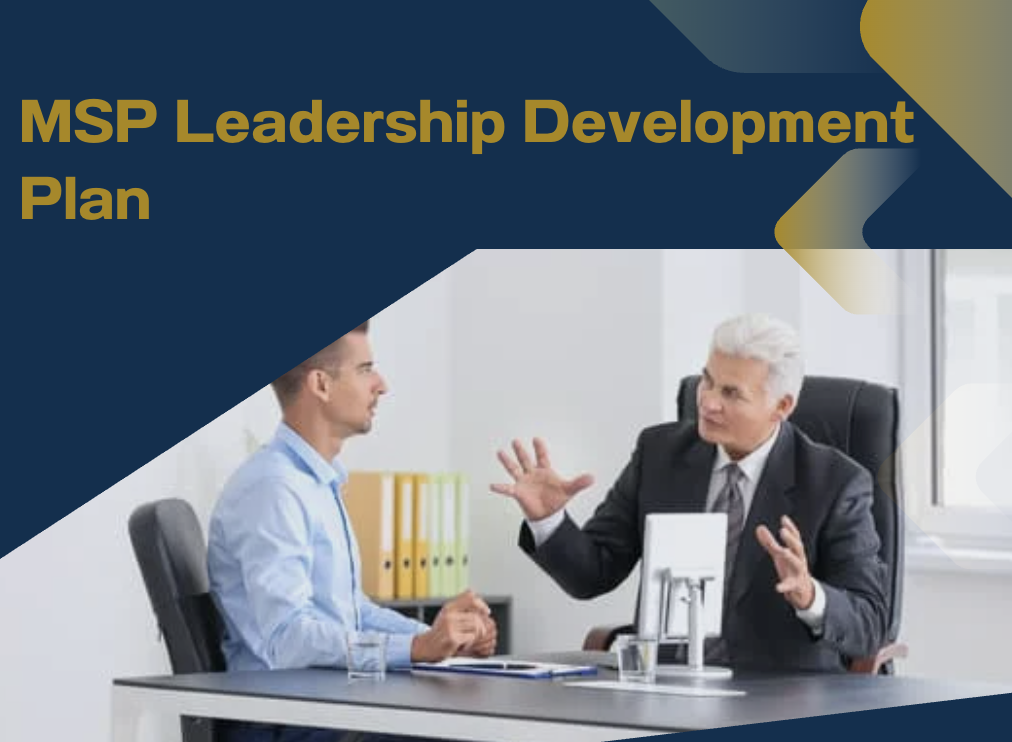The strength of your MSP’s leadership team directly influences every aspect of your business, from client satisfaction to employee retention and revenue growth. Yet many MSP owners find themselves so focused on technical excellence and service delivery that they overlook the critical need to develop leadership capabilities within their organization.
Building a robust leadership development plan isn’t just about preparing for succession or filling management gaps. It’s about creating a culture where leadership skills are valued, nurtured, and continuously refined across all levels of your organization.
Understanding Leadership Needs in MSPs
Identifying Current Leadership Gaps
The first step in creating an effective leadership development plan involves assessing your leadership capabilities. This means evaluating your executive team and middle management, team leads, and emerging leaders throughout your organization. Consider technical leadership, client relationship management, team development, and strategic thinking.
Defining Leadership Competencies
Successful MSP leaders require a unique blend of technical expertise, business acumen, and people skills. Your leadership development plan should address core competencies such as communication effectiveness, conflict resolution, strategic planning, and change management. Additionally, MSP-specific skills like vendor relationship management, cybersecurity awareness, and client consultation abilities are essential.
Read Also: From Technician to Leader: Preparing High-Potential Employees for Promotion
Creating Structured Development Pathways
Establishing Career Progression Routes
A well-designed leadership development plan includes clear pathways for advancement within your organization. These pathways should outline the skills, experience, and achievements required to move from technical roles into leadership positions. Consider creating multiple advancement tracks that accommodate different strengths and interests, such as technical leadership, account management, or operations management.
Implementing Mentorship Programs
Effective mentorship relationships accelerate leadership development while strengthening organizational bonds. Pairing experienced leaders with emerging talent creates opportunities for knowledge transfer, skill development, and relationship building. Consider formal mentorship programs with structured objectives and informal mentoring relationships that develop naturally.
Developing Essential Leadership Skills
Communication and Interpersonal Effectiveness
Strong communication skills form the foundation of effective leadership in MSPs. Leaders must be able to translate technical concepts for non-technical audiences, facilitate difficult conversations with clients and team members, and inspire others through clear vision and direction. Development activities should include presentation skills, active listening techniques, and emotional intelligence training.
Strategic Thinking and Business Acumen
Technical expertise alone isn’t sufficient for MSP leadership success. Leaders need to understand business fundamentals, including financial management, market analysis, and strategic planning. This knowledge enables them to make decisions that balance technical excellence with business viability.
Change Management and Innovation Leadership
The technology sector’s rapid pace of change requires leaders who can navigate uncertainty while maintaining team morale and productivity. Effective change management skills help leaders guide their teams through technology transitions, organizational restructuring, and market shifts.
Implementing Development Activities
Formal Training and Education
Structured learning opportunities provide foundational knowledge and skills development. This might include leadership workshops, industry conferences, certification programs, or executive education courses. Choose programs that align with your identified competency requirements and offer practical applications relevant to MSP operations.
Performance Feedback and Coaching
Regular feedback and coaching conversations help developing leaders understand their progress and identify areas for continued growth. Establish formal review processes that focus on leadership development alongside technical performance. Consider engaging external coaches for senior leadership development or critical transitions.
Conclusion
Building an effective leadership development plan for your MSP requires careful planning, consistent execution, and ongoing refinement. When done well, it creates a sustainable competitive advantage that attracts top talent, improves operational effectiveness, and drives business growth.
Don’t let leadership gaps limit your MSP’s potential. Partner with the Call to Action Gold Team to build a leadership development program that prepares your organization for sustained success.



